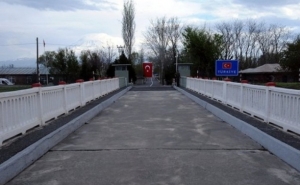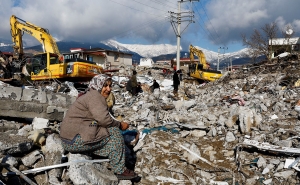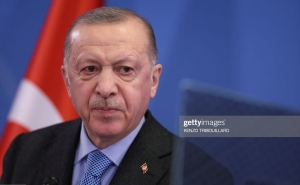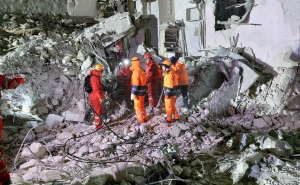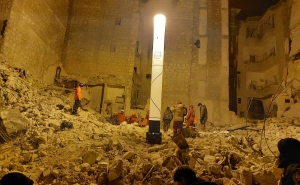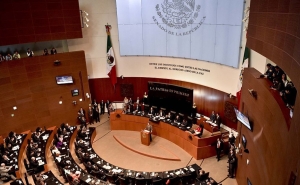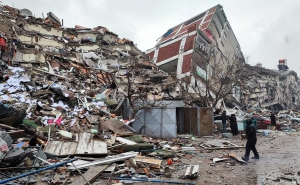Bundestag Deputy: With the Refugee Crisis, It Became Clear the EU will Need Turkey and the Tabling of the Resolution was Delayed (EXCLUSIVE)
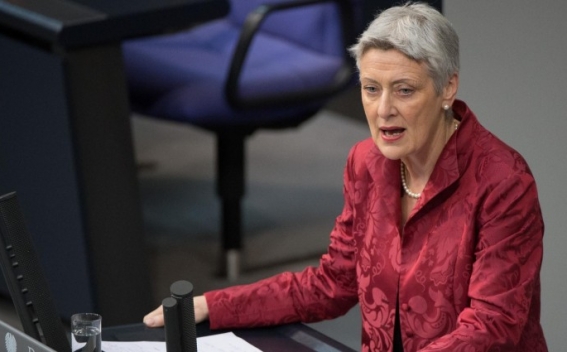
"Armedia" IAA presents an exclusive interview with a member of the German Bundestag from Green Party, Spokesperson for Policy on Eastern Europe, Marieluise Beck on the recognition of the Armenian Genocide by Bundestag and the developments of German-Turkish relations.
- The need for the recognition of the Armenian Genocide has been voiced at different levels in Germany many times, but it was only 101 years later that Bundestag recognized it. How did that moment come and did you predict that the resolution would almost unanimously be accepted?
- The Bundestag already adopted a resolution in 2005 on the occasion of the 90th anniversary of the Armenian Genocide which was unanimously supported by all political groups at the parliament. Back then, the Bundestag avoided using the term "genocide" to ease the attempts for reconciliation between Turkey and Armenia. But, already the 2005 resolution described the fact that the vast majority of historians classify the event of 1915 as genocide.
It was clear that the Bundestag would remember the Armenian Genocide on its 100th anniversary since there is an obvious German responsibility for what happened. The German government was well informed about the genocide, but did not interfere for the sake of good relations with Turkey, then a major ally in the First World War. Last year, my colleague Cem Özdemir initiated a draft resolution of the Green political group at the Bundestag. Ten years after the first resolution, we had to notice that careful and hopeful attempts for a reconciliation stopped and that it was getting more and more unlikely, since the Turkish government propagated a new harsh nationalistic approach. So for the new resolution it became apparent to call the genocide – genocide, instead of waiting for a historical commission that became more and more unlikely.
The governing coalition drafted a resolution, too, but again avoided the term "genocide" out of respect for Turkey and the difficulty to deal with that past within the Turkish society. However, after the first reading of both resolutions those voices within the coalition got stronger, who were in favor for clearly calling the mass murder genocide. Thus, the coalition offered the green fraction to stop both motions and proposed a new common resolution that should be adopted in the year of the 100th anniversary by the end of 2015. With the refugee crisis, it became clear the EU will need Turkey and the coalition was delaying the tabling of the resolution. In March 2016, we finally decided that we will no longer wait for the coalition and again tabled an own resolution which reflected the new text we had already agreed on with the government coalition. During the debate on our motion, the coalition again asked us to withdraw the motion and adopt a common resolution until summer 2016. Obviously, they wanted to avoid a situation. where it had to reject a motion of the opposition and the signal that such a voting would send to Armenia.
So, it was a long and hard struggle for a common resolution. I am glad, that we finally reached it. There is always a common interest among all fractions in the Bundestag in reaching broadly supported resolutions on such events of historical meaning.
- Today the Turkish authorities threaten Germany for the recognition of the Armenian Genocide. Even some actions against Germany are being talked about. Will the recognition of the Armenian Genocide become a reason for the deterioration of German-Turkish relations?
- For sure the resolution will not make easier to deal with Turkey. But we cannot limit our freedom of speech or criticism of the deteriorating democracy and human rights situation in Turkey for the sake of good relations. Contradictoriness and open criticism must be possible in international relations. If you read the text of the resolution carefully, this is not an accusation against Turkey but rather a document emphasizing the German role and responsibility. Unfortunately, German lawmakers with Turkish roots are now confronted with death threats coming from the Turkish community in Germany or from Turkey. President Erdogan is fuelling this hate with utterly impossible comments about these MPs. Obviously, Turkey and Germany will have to work together in the future as well and we should calm down this sharp rhetoric immediately.
- After the recognition of the Armenian Genocide what will Germany’s next steps be?
- The debate about the Armenian Genocide triggered a debate about a possible resolution on the Genocide against the Herero people in Namibia which is another dark part of German history that is still not officially recognized. Concerning the Armenian Genocide, Germany will continue to support the historical research and reconciliation between Turkey and Armenia.
Other materials on this subject
- Australia MP Joins Demand for Armenian Genocide Recognition A former Mayor of the Bega Valley Shire, McBain entered Federal Parliament in 2020 after winning a by-election. A lawyer by training, Kristy McBain becomes the newest member of the Joint Justice Initiative.
- Quebec National Assembly Unanimously Passes Resolution on 106th Anniversary of Armenian Genocide The resolution marks the 106th anniversary of the atrocities that took the lives of 1.5 million Armenian men, women and children.
- Armenian Churches’ Bells to Ring Friday Night in Memory of Genocide Victims The bells of all the temples of the Armenian Church will ring on Friday at 11pm, in memory of the holy martyrs of the Armenian Genocide.
- Los Angeles Declares April as Armenian History Month One of the motions recognizes April 24 as the Day of Remembrance in solemn recognition of the Armenian Genocide, and the second declares April as Armenian History Month.
- Wall Street Journal: Biden Intends to Recognize Armenian Genocide Biden is expected to describe as genocide the deportation, starvation, and massacres of Armenians at the hands of the Ottoman Turks beginning in 1915, the officials said.
-
 17:08
17:08The regular session of the Anti-corruption Policy Council takes place in Jermuk
-
 15:05
15:05The Prime Minister sends congratulatory messages to the supreme leader of Iran and the President of Iran
-
 11:11
11:11Armenia sends earthquake aid to Turkey
-
 10:43
10:43Commemoration of the Pontiff St. Sahak Partev
-
 09:16
09:16Some roads are closed and difficult to pass in Armenia
-
 19:55
19:55Phone conversation of the Foreign Minister of Armenia with the U.S. Assistant Secretary of State for European and Eurasian Affairs
-
 18:30
18:30Prime Minister Pashinyan and President Khachaturyan meet
-
 18:20
18:20Ararat Mirzoyan with Co-Chairman of the OSCE Minsk Group of France Brice Roquefeuil
-
 17:01
17:01Humans could land on Mars within 10 years, Musk predicts
-
 16:45
16:45France, US urge 'immediate' end to Nagorno Karabakh blockade
-
 16:01
16:01Blockaded Nagorno Karabakh launches fundraiser to support quake-hit Syria
-
 15:59
15:59Earthquake death toll in Turkey rises to 18,342
-
 15:43
15:43Ararat Mirzoyan Held a Telephone Conversation with Sergey Lavrov
-
 15:06
15:06French president rules out fighter jet supplies to Ukraine in near future
-
 14:47
14:475 Day Weather Forecast in Armenia
-
 14:44
14:44President Vahagn Khachaturyan wrote a note in the book of condolences opened in the Embassy of Syria in Armenia
-
 14:20
14:20Azerbaijan’s provocations impede establishment of peace and stability – Armenian FM tells Russian Co-Chair of OSCE MG
-
 12:57
12:57France representation to OSCE: Paris calls on Azerbaijan to restore freedom of movement through Lachin corridor
-
 11:40
11:40Command of Kosovo forces highly appreciated preparation of Armenian peacekeepers
-
 10:16
10:16The United States withdrew from sanctions against Syria for six months the provision of assistance after the earthquake
day
week
month
Humidity: %
Wind: km/h


